The firms trying to put the glamour back into flying
- Published
I wanted to be able to go online and book a private jet, says Sergey Petrossov
In its infancy, commercial air travel was expensive, and seemed like the ultimate in luxury.
Today, that era seems long gone. Delays, strikes, long queues at security checkpoints, packed planes, and incidents like the violent removal of a passenger from a United Airlines flight, are just some of the factors that lead many air travellers to view their next trip with dread rather than delight.
Despite this, there have been attempts over the past couple of decades to bring some of the glamour back to flying, by trying to revolutionise the private aviation market.
Some of these endeavours relied on the use of innovative manufacturing techniques that promised to produce small aircraft at lower costs than previously thought possible, and then to use these aeroplanes to offer new services.
In the 2000s, Dayjet, based in Florida, planned to make use of a fleet of Eclipse aircraft (one of a new breed of "very light jets" or VLJs) to offer "on-demand" flights at cheaper prices than those charged by existing private air charter firms.
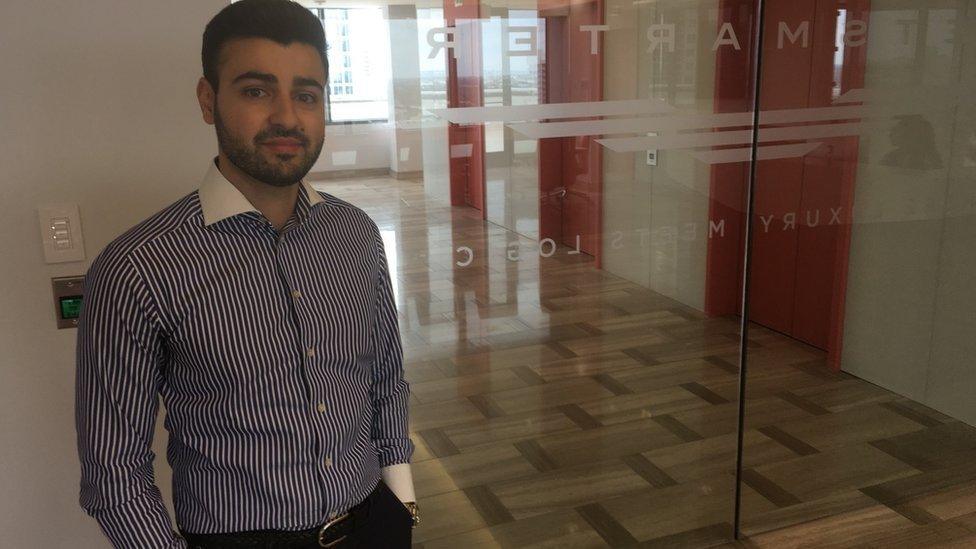
Booking a private jet used to involve sending faxes back and forth, says JetSmarter founder Sergey Petrossov
Although this initiative failed, entrepreneurs have continued to try to rethink the private aviation market.
A series of start-ups are now applying new technology to the challenge. This time, however, the focus is on streamlining the booking and scheduling of aircraft, rather than on the process of building them.
Some of these ventures have already failed, whilst others, like Surfair, have begun to expand across the globe.
Another of the new players is JetSmarter, which has headquarters in Fort Lauderdale in Florida. Its founder, Sergey Petrossov, first became interested in the field almost a decade ago, when he was invited to join a friend on a private jet flight.
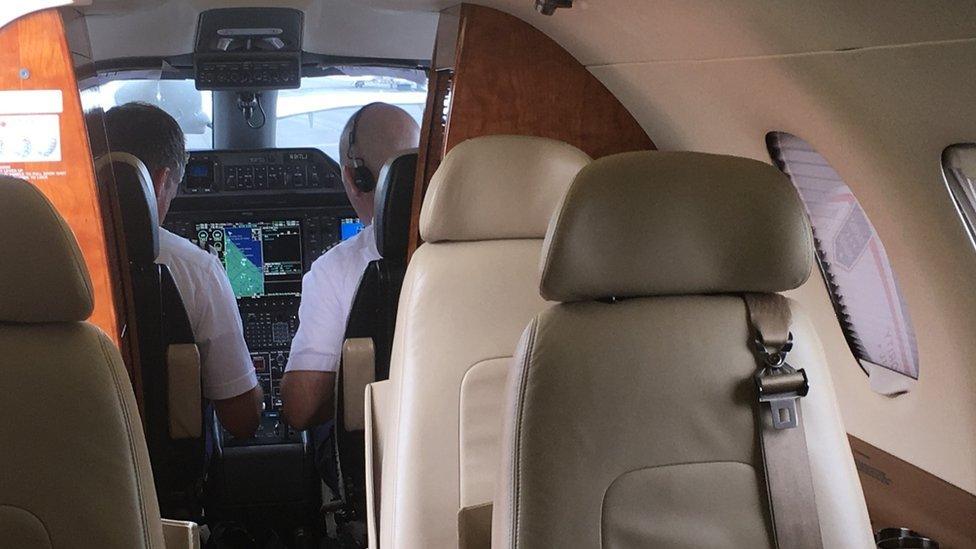
Many private jets flew one way with no passengers at all, Sergey Petrossov discovered
Mr Petrossov, an entrepreneur who had previously launched businesses involved in education technology, found the private aviation world fascinating. He decided to research the market; what he discovered astonished him.
For one thing, in the late 2000s, booking a private flight often involved using fax machines to send documents back and forth.
"When I heard 'fax' I was thinking [that] this sounds like a stock market transaction in the eighties", he laughs. He was amazed to learn that, at the time, it was not generally possible to book flights online.
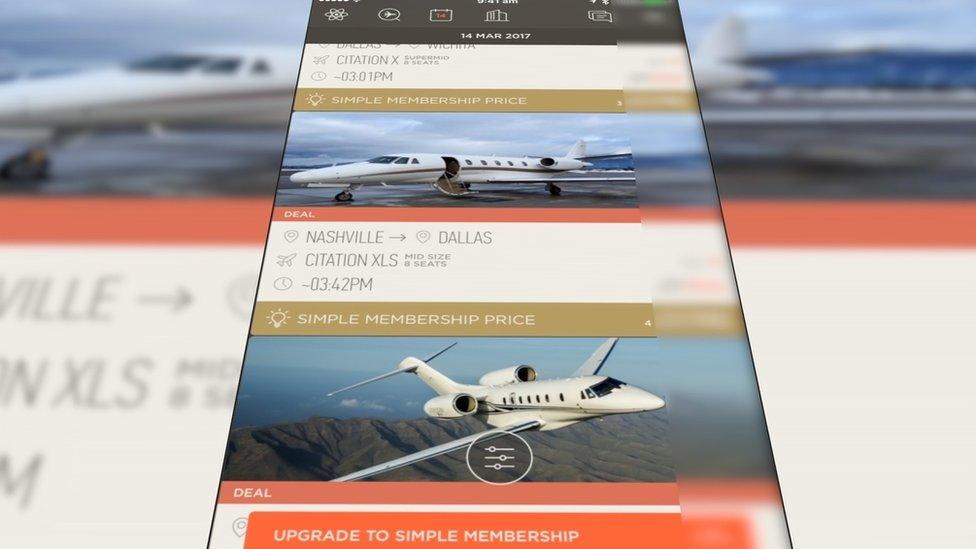
JetSmarter aims to make booking a seat on a private plane as easy as booking a taxi
He began to look deeper into the industry.
"The craziest thing about it was the average private airplane was only flying 200 hours a year, when optimally they could be flying 1500 hours a year.
"And out of the 200 hours it was flying, one-third of the hours didn't have a single passenger on them - they were just flying empty," Mr Petrossov recalls.
He saw a big opportunity to create a new business selling empty seats on private jets, with a modernised online booking process.
The use of smartphone apps would make immediate reservations a possibility, in the same way that users of online taxi services like Uber can make instant cab bookings.
Mr Petrossov believes that this approach allows him to offer flights on private jets at lower prices, and to open up the market to a new group of customers.

Private jets are a world apart from the delays and long queues involved in normal flights
The JetSmarter business model involves a membership scheme. Customers pay an annual fee of $15,000 (£11,547; 13,127 euros), which includes access to some flights free of further charges; for an additional cost they can also arrange flights themselves, and in some cases share the cost of these with other members.
The company does not operate any planes itself. Instead flights are provided by various private jet operators in the US and several other countries around the world.
The key to success for his enterprise, says Mr Petrossov, lies in the size of the community of customers.
"It's built on having a core base of members that then start to talk about it, and building that core is by far the most difficult [task]…. it's like any other social network.
"If you don't have the people in it you can't scale it, you can't grow it," he explains.
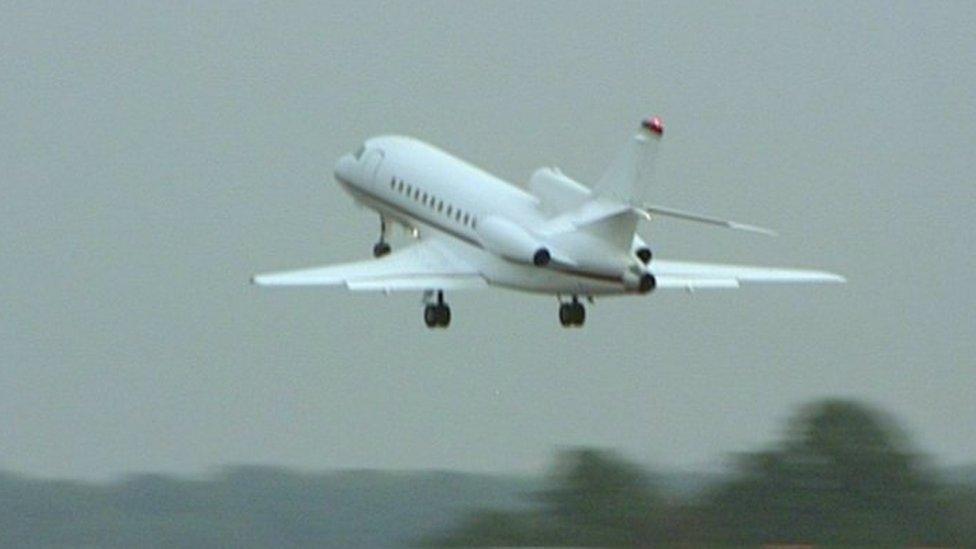
The key to success lies in the size of the community of customers, says Mr Petrossov
The greater the number of members, Mr Petrossov continues, the greater the number of flights, and the more attractive the proposition becomes to both existing and new customers.
The firm is also starting to offer additional services, such as accommodation, in the hope of providing travellers with a seamless, "end to end" experience.
Life of Luxury highlights
It is not yet clear whether new approaches to private aviation like the one being pioneered by JetSmarter will be viable in the long term.
But Richard Aboulafia, vice president of analysis at Teal Group which focuses on the aerospace and defence industry, says he finds these new business models "intriguing".
"Maybe this time technology companies can get it right," he says.
Mr Aboulafia adds that applying technology to the booking and scheduling side of the business is a smarter idea than trying to find an innovative way to dramatically cut the cost of building private jets.
The latter approach almost always ends in grief, not least because it can consume vast amounts of capital, he says.
For his part, Sergey Petrossov remains optimistic, although he recognises that there are lots of challenges ahead:
"What really makes an entrepreneur is... perseverance. Being able to find the way no matter what."
- Published14 February 2017
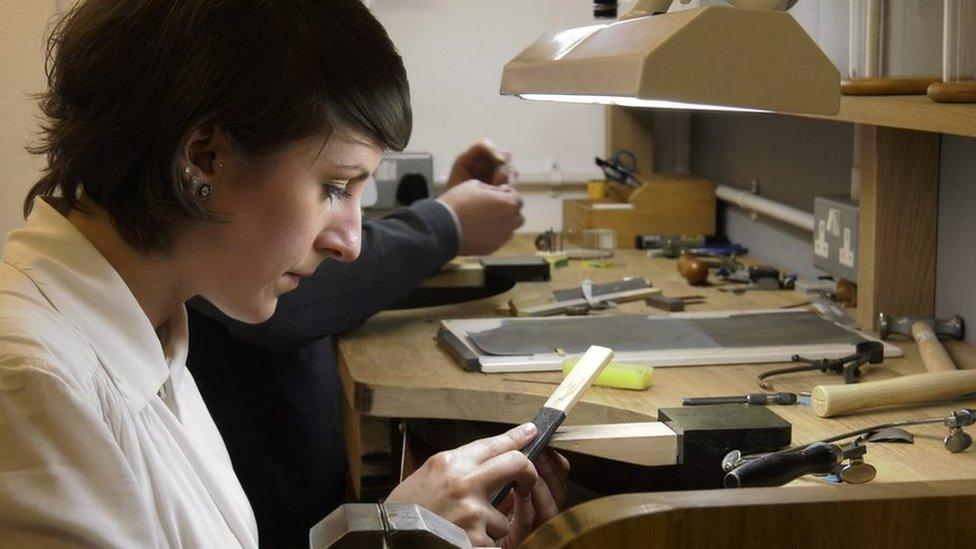
- Published7 February 2017

- Published31 January 2017
